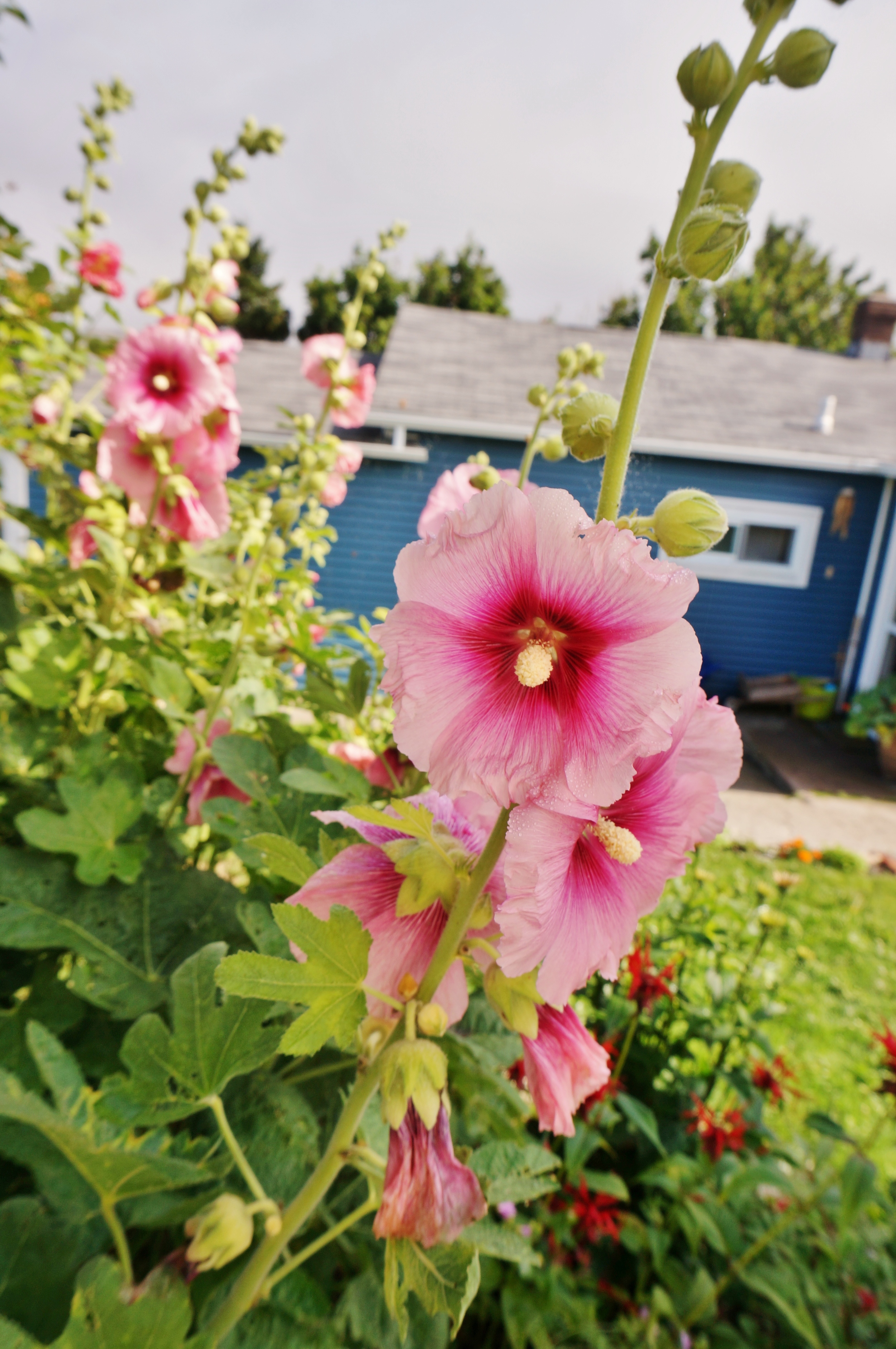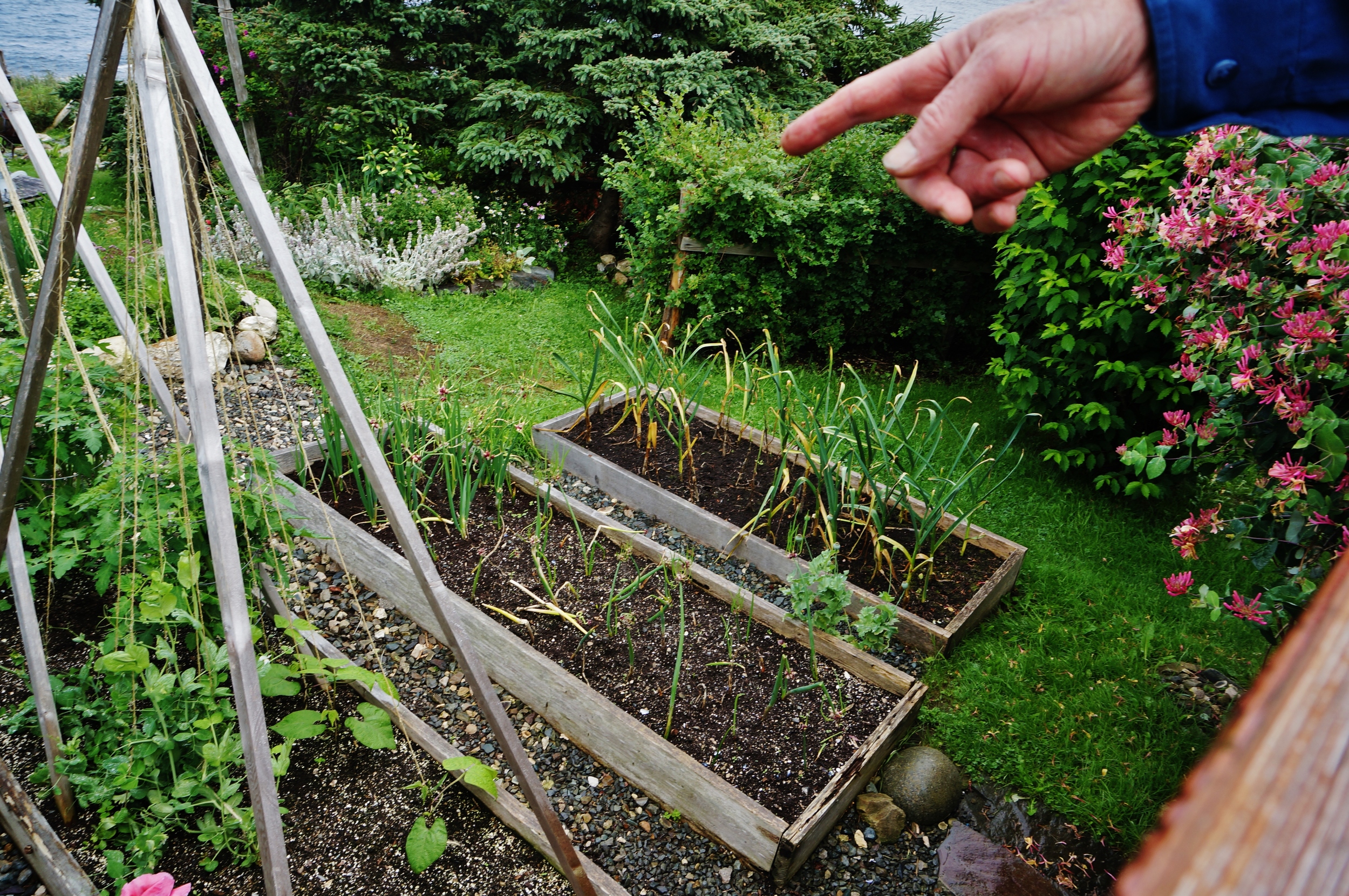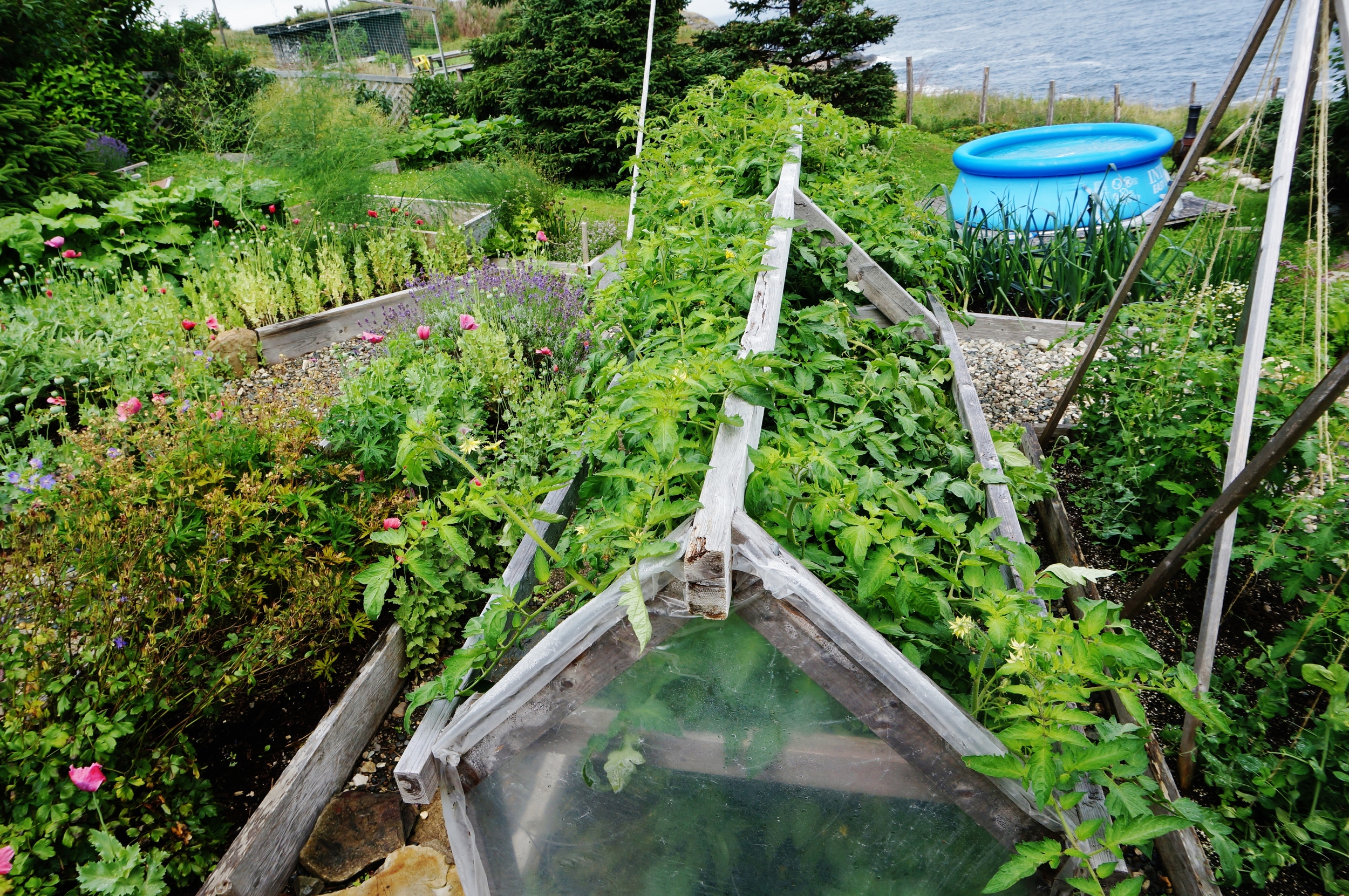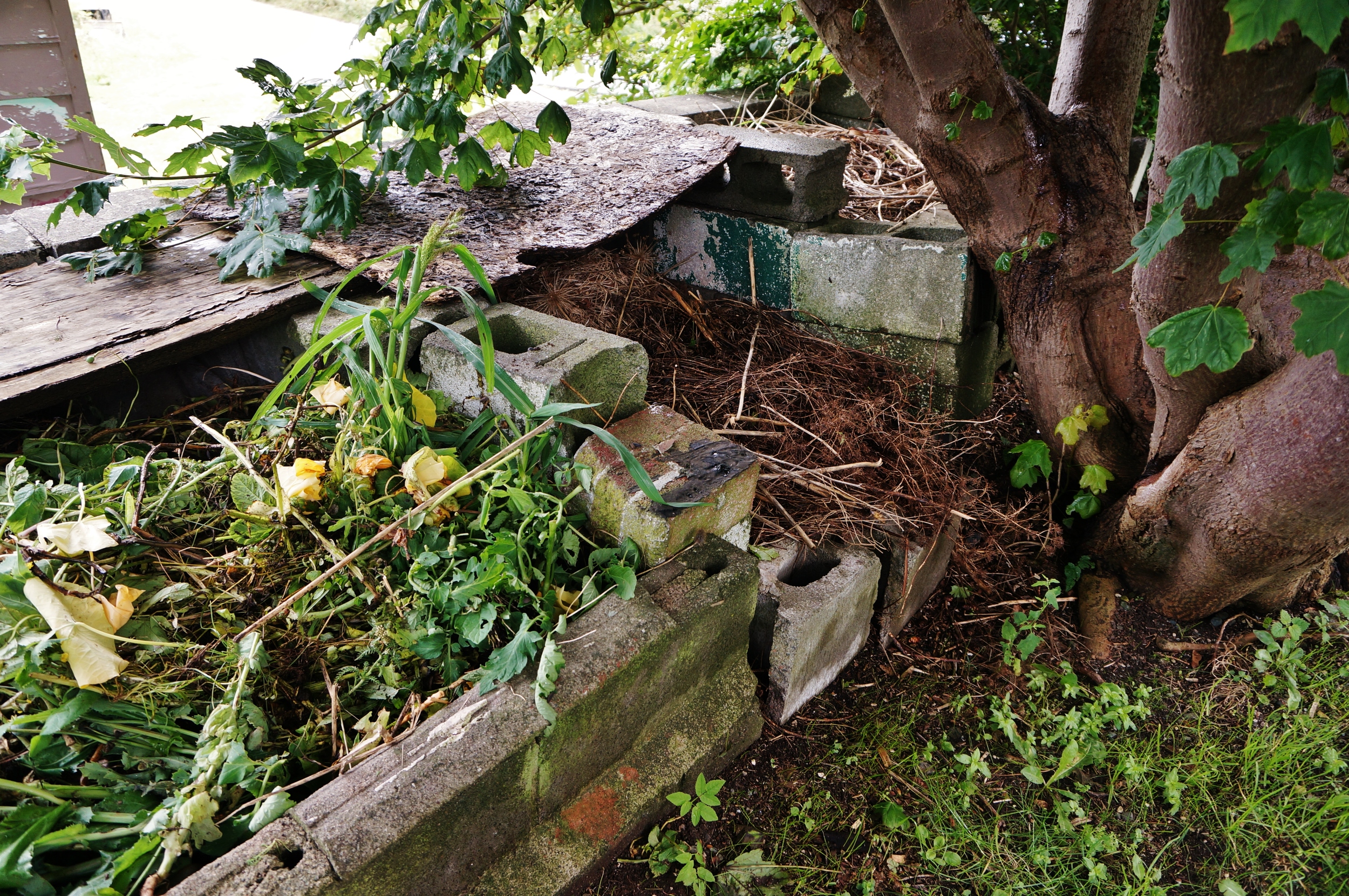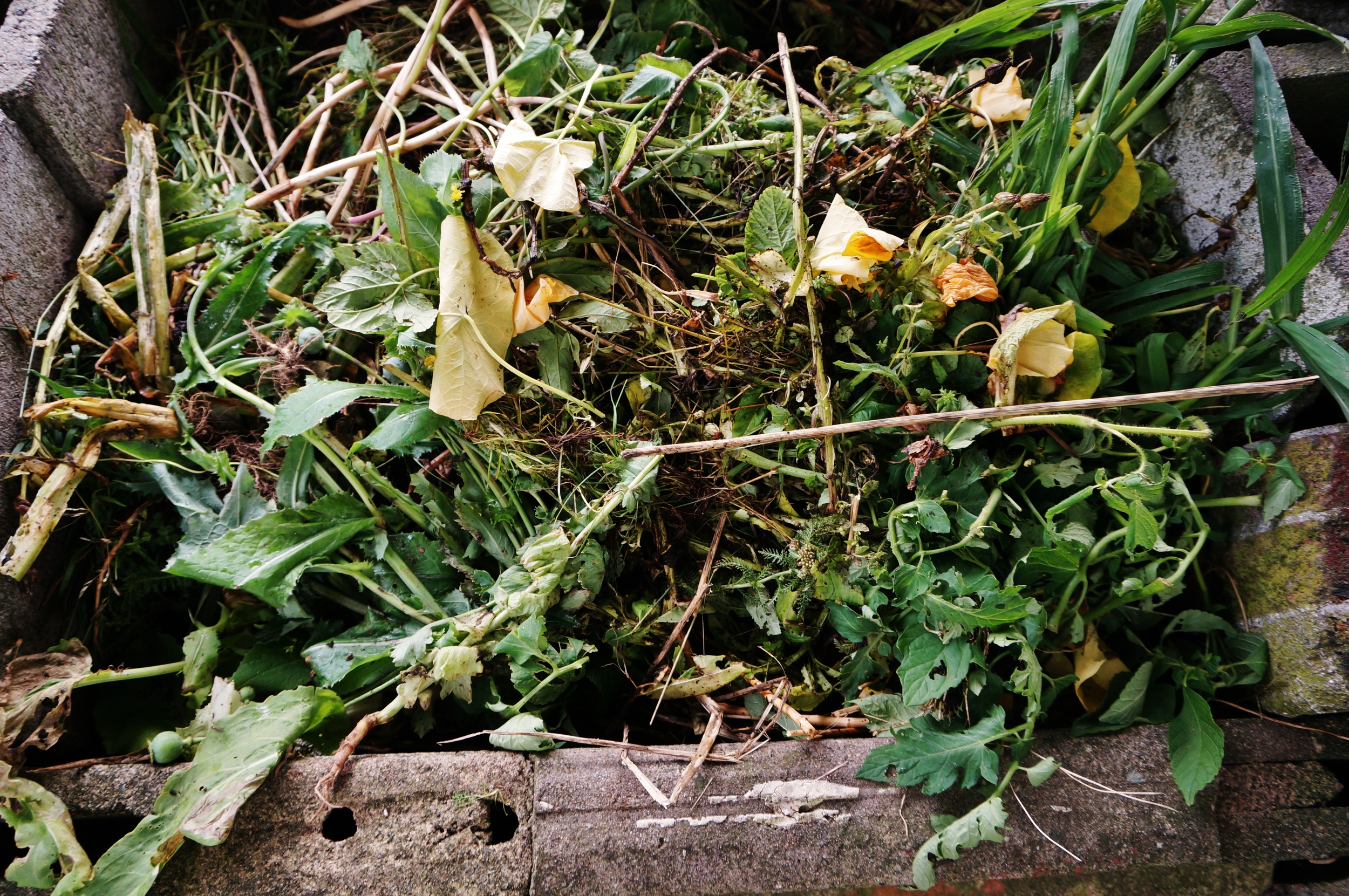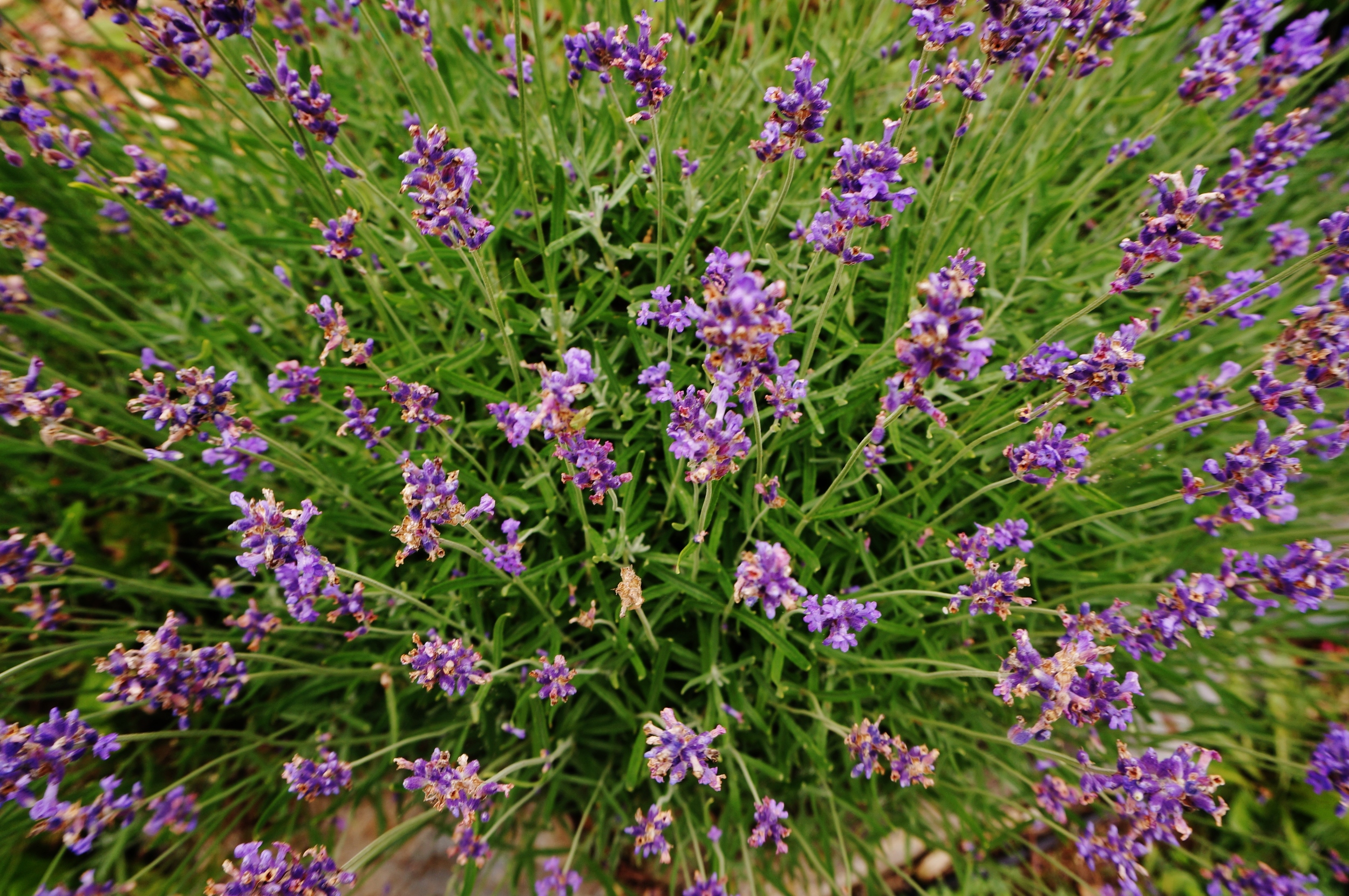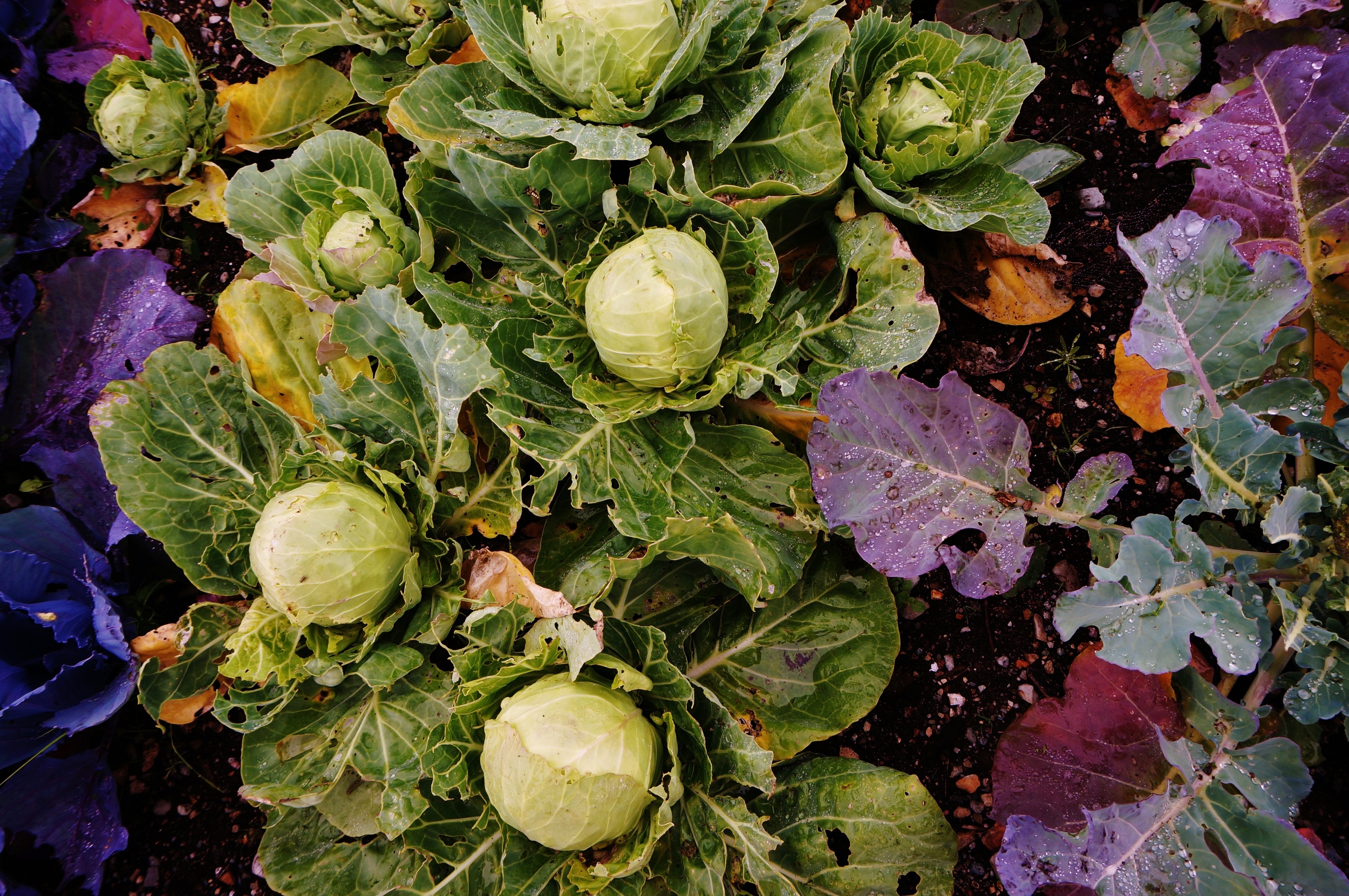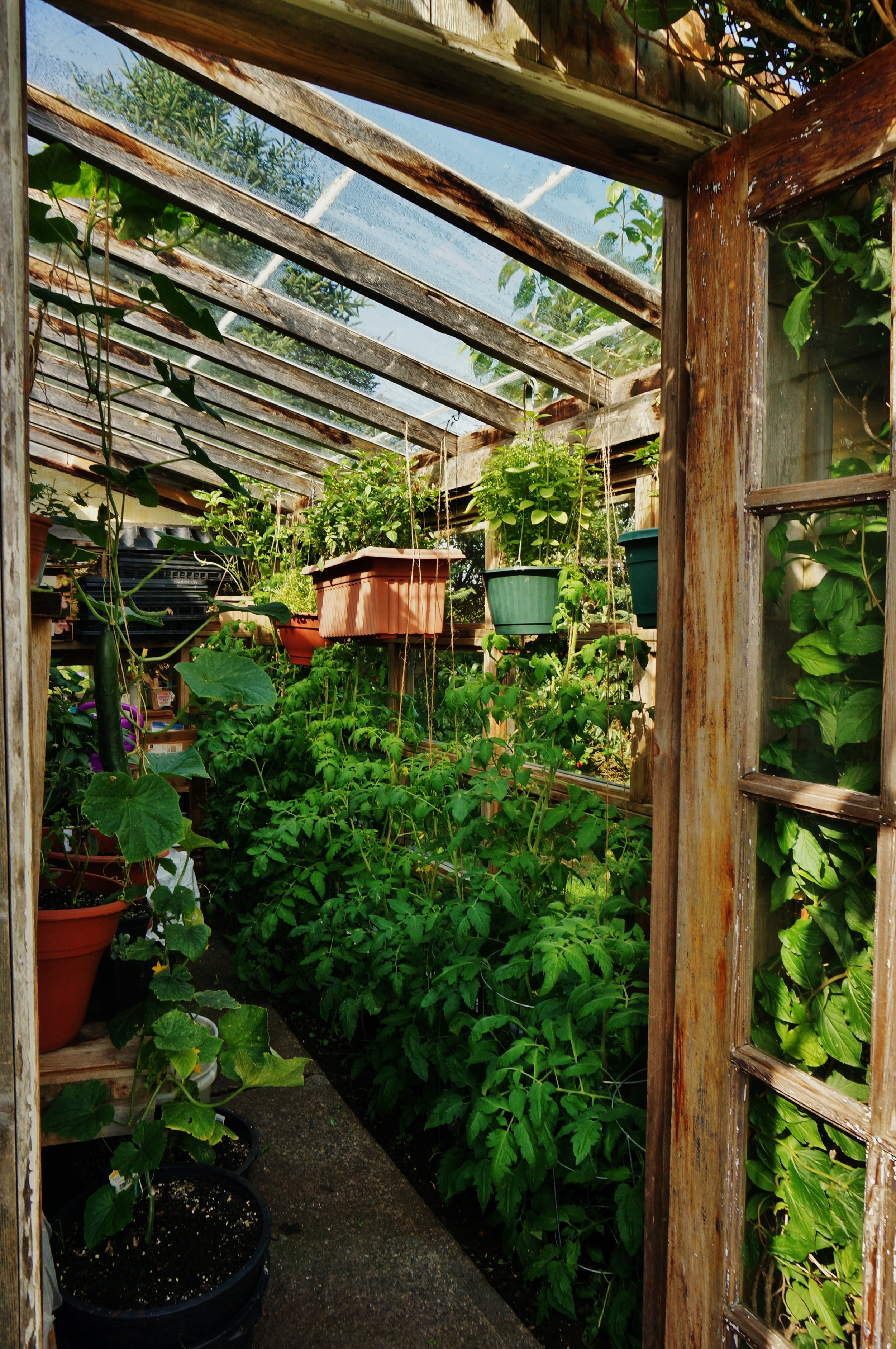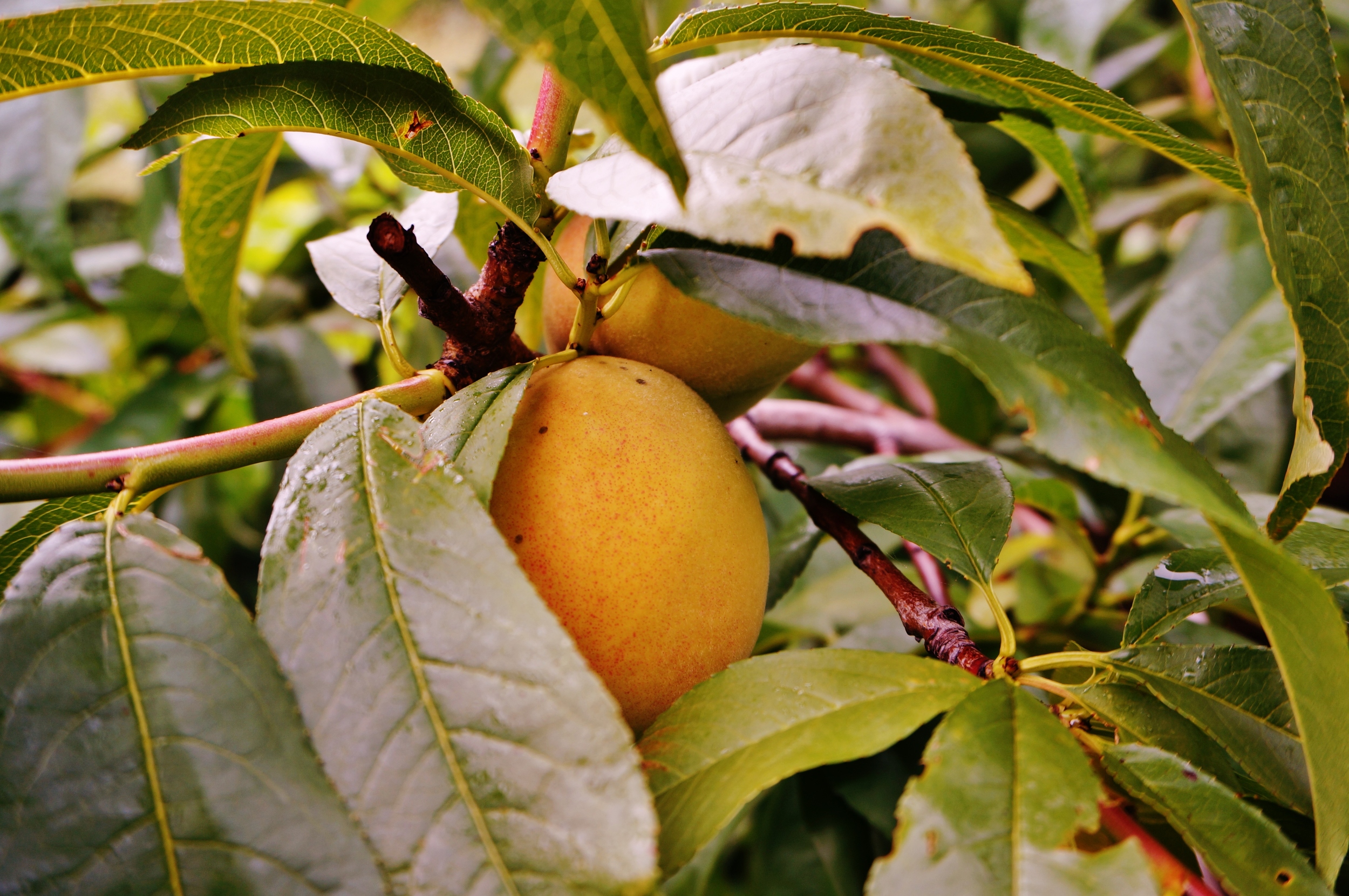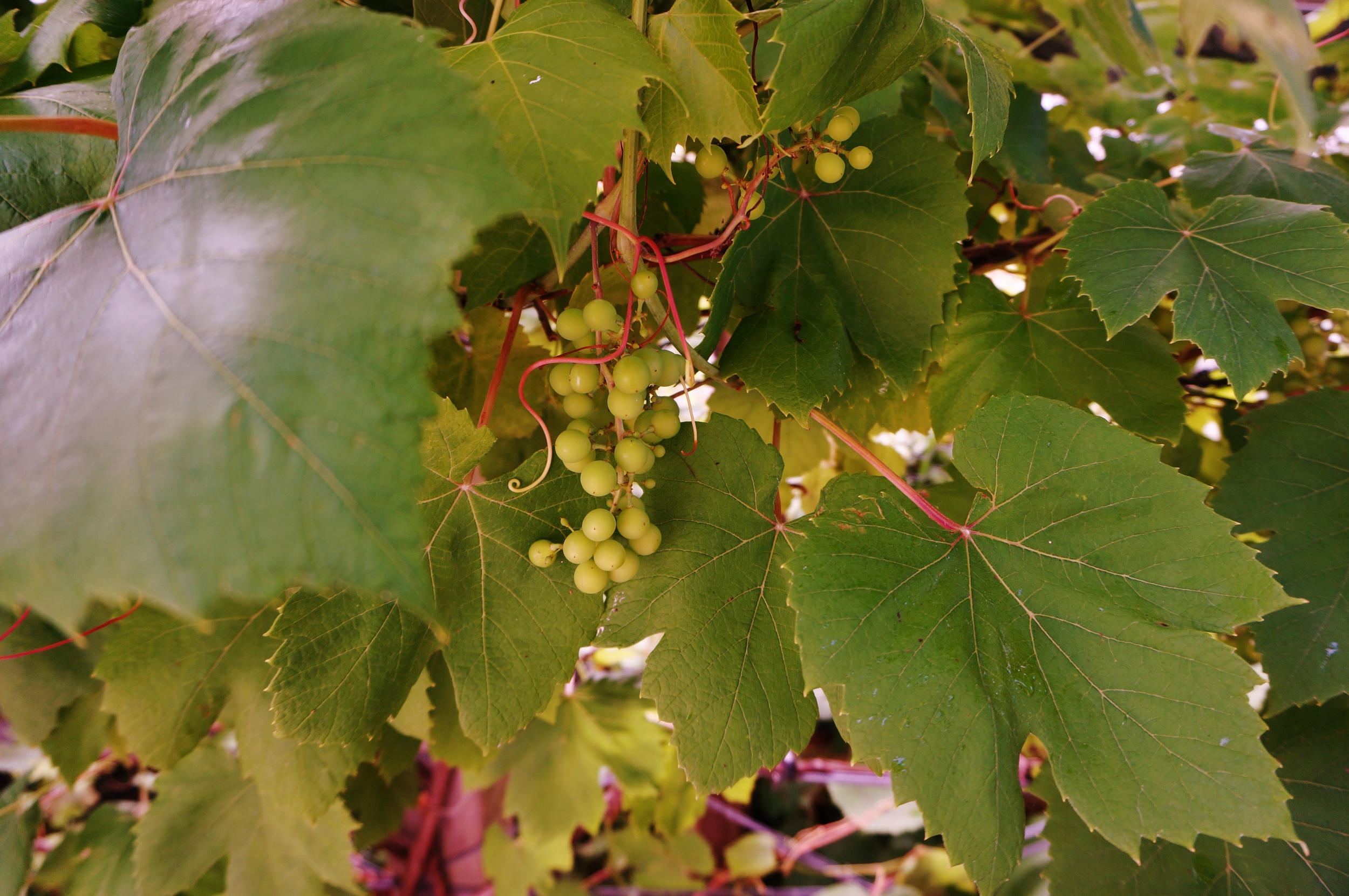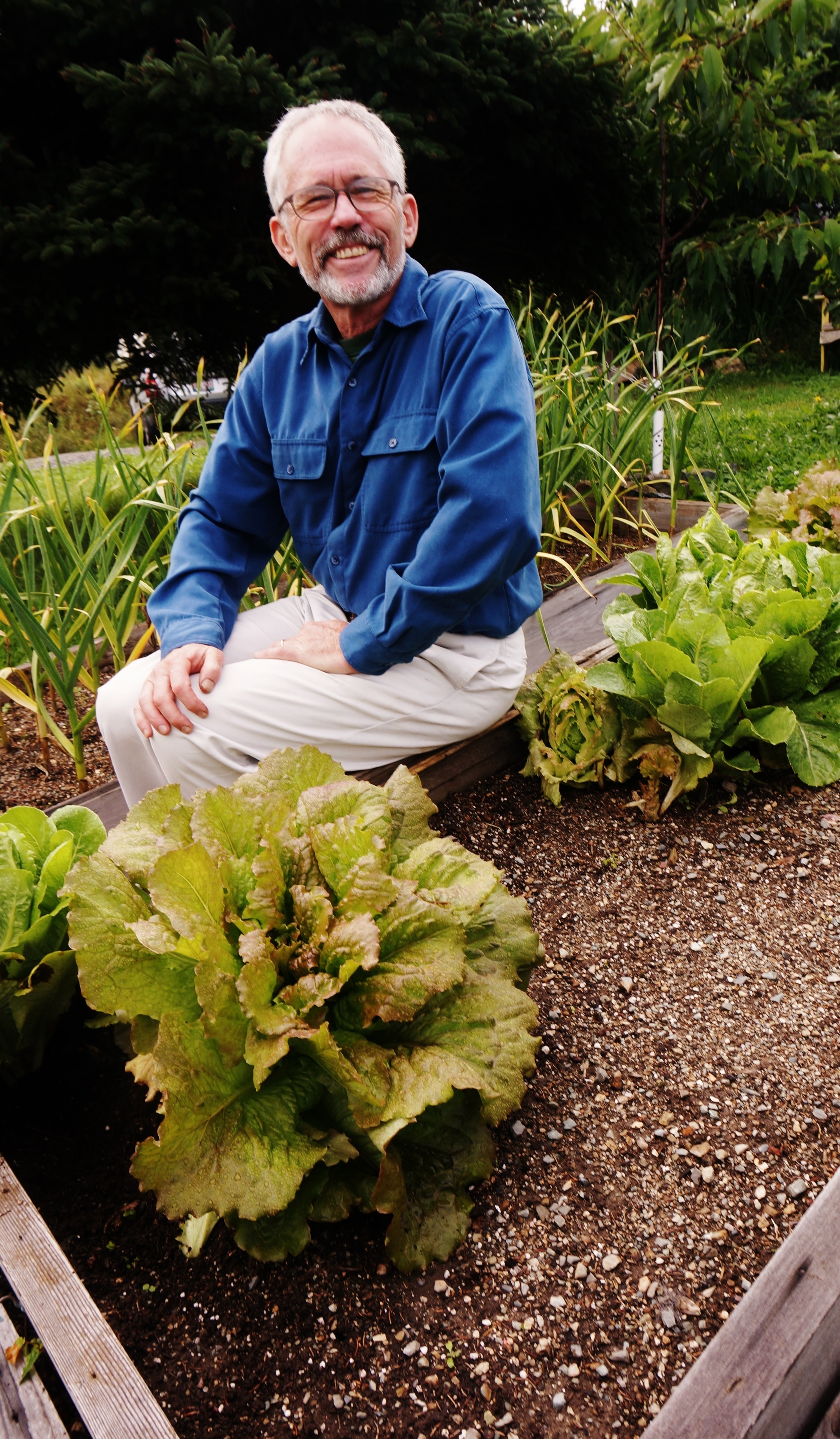Hollyhock, with Dan's house in the background
This post is the sixth in a series that Sarah Campbell, an intern with FSN, is doing around the International Year of Family Farming this summer, gathering stories of family farming from around the Avalon Peninsula. Look for more stories in the coming weeks!
Dan Rubin's enthusiasm is infectious. A former teacher and curriculum designer, now a writer, musician, and seed company owner, Dan runs Perfectly Perennial Herbs and Seeds with his son Jasper on the edge of the ocean in Pouch Cove. Growing for seed and consumption on the lot behind his house, as well on an adjacent lot shared with four neighbours, Dan currently stocks eight seed varieties of flowers and vegetables alike. The passion and creative energy that Dan puts into his project yields results. He's interested in growing as much as possible in our windy, wet, and cold climate, which means that he uses as many tricks and tools as possible to make that achievable. He grows artichokes, peach trees, grapes, lavender, peppers and a fig tree, in various "microclimates" around his property – behind other trees and shrubs, behind buildings, and protected by walls – to better ensure their growth. He has a greenhouse, made from recycled materials – mainly old windows he got for free from restaurants in town that were throwing them out – which provides protection for peppers, basil, a fig tree, an almond tree and tomatoes. He talks to local gardeners and national seed producers alike in order to gather information on the plants and plant varieties that are best suited for his garden. He's got a compost overflowing with worms on the side of the house.
Dan and his neighbours – four households in total – recently started a non-profit they call Deborah's Garden: A Pouch Cove Neighbourhood Initiative, named after the person who originally "donated the money to keep the land wild." They pool their resources – land, knowledge, time, skills, connections, visiting nephews – to work the land. This summer was their first growing using thirty-six raised beds, and one two-thousand square-foot field. In the field are row crops – among them three varieties of potatoes, arugula, and Dan's choice for a grain hardy to Newfoundland and Labrador (chosen after talking with friends in the province and away) : buckwheat.
Dan pointing out trellises in the garden; the raised beds at Deborah's Garden; another view of Dan's backyard garden with tomatoes in the foreground
"The tomato house [...] has a plastic covering which is rolled off right now, that's a really good example of a [...] protective structure."'
Dan sees his business as being a part of a larger movement the world over to ensure that the seeds from which our food is grown are contributing to food security and the equitable distribution of resources (for an introduction, you can check out this great interview with Vandana Shiva). Large seed companies control the seed market in a big way, especially for the world's staple crops: corn, wheat, and soy. They produce seed that cannot be saved, which creates a dependency of farmers on seed companies : the seeds are generally hybrid varieties that will not grow true-to-type after their first planting and farmers must buy seeds every season. It is also a business model that favours a monoculture of seed: one variety is generally sold of each crop, meaning that the type of adaptation to climate that Dan is looking for is not present. Plants are less adapted to the places where they are grown and food security suffers because the plants are more likely to die when conditions are drier, wetter, hotter, or colder than the climate where the seed is produced. Dan has made the choice to sell heritage seeds that are true-to-type varieties (they can be saved) and are adapted to the province's climate.
Looking ahead to the future, the next challenge is scale. Dan tells me that the goal is to scale up to produce seeds for ten vegetable varieties which would hopefully allow the home gardener to attain household food security in the province. He plans to select a combination of traditional crops – like turnip, cabbage, walking onions and potato – and crops that do well in the climate – like a perennial kale variety he brought with him from British Columbia. Because Dan will produce the seed here, even if the varieties aren't traditional, it will be from plants that are adapted to the climate. He recently received funding from the Bauta Family Initiative on Canadian Seed Security (in partnership with Seeds of Diversity) to support this expansion. He hopes this will allow him to supply seed to growers all over the province, thereby contributing to biodiversity, the production of traditional and locally-adapted varieties, and food security province-wide. Dan also wants to achieve food security for his own family in the garden, which is not yet a reality – he estimates that he produces about 5 per cent of the food his family eats. He'd like to get that up to somewhere around 25 or 50 per cent if he can, continuing the work he is doing to show home gardeners and farmers of the province what food security can look like. Take a listen to our conversation below – Dan sure knows how to weave a story!
Perfectly Perennial Seeds can be purchased on Dan's website. Dan also hosts workshops in the spring on year-round gardening. A link to information about those workshops is also on his website. For more resources on seed-saving and gardening, heritage varieties, and other great seed-related information, visit the Seeds of Diversity website - a great resource. And for more information on the Bauta Family Initiative on Canadian Seed Security you can visit their website. 
Carrot tops in Deborah's Garden
[soundcloud url="https://api.soundcloud.com/tracks/164699489" params="auto_play=false&hide_related=false&show_comments=true&show_user=true&show_reposts=false&visual=true" width="100%" height="150" iframe="true" /]
"That's our triple compost. That's where all of our kitchen waste [goes]. Let me show you what's going on here if I can uncover it. Look! Worms!" "That's great! I hope I can zoom in on that."
"This is a lavender garden. This is my wife's happy place ...with seven, no, eight, varieties of lavender planted."
[soundcloud url="https://api.soundcloud.com/tracks/164699480" params="auto_play=false&hide_related=false&show_comments=true&show_user=true&show_reposts=false&visual=true" width="100%" height="150" iframe="true" /]
Two varieties of cabbage ; "These are kale; gone to seed. [...] We'll let these go completely dry. That's one of the keys to seed-saving, dryness. [...] We'll get as much as a quart of seed out of this bed.''
"This greenhouse was built out of recycled glass. The wall units came from [a] [...] cafe on Duckworth. The roof came from a [...] store on Water St."
[soundcloud url="https://api.soundcloud.com/tracks/164699482" params="auto_play=false&hide_related=false&show_comments=true&show_user=true&show_reposts=false&visual=true" width="100%" height="150" iframe="true" /]
"Another key thing is these maple trees, which were planted here already when we arrived. What these trees do is they send their roots really deep down in the earth and they find all the wonderful micro-nutrients in the rock and they leach it out with their, you know, rootlets [...] and they bring that all up and they put that in the leaves. And then every fall those leaves fall and so we rake them up and we dig them into the beds and then the beds get the micronutrients. And that's what the trees are doing, they're harvesting fertilizer, while they're growing."; Peaches!!
"These are poppies, we harvest the poppy seed; we don't even plant these, they reseed every year."
[soundcloud url="https://api.soundcloud.com/tracks/164699487" params="auto_play=false&hide_related=false&show_comments=true&show_user=true&show_reposts=false&visual=true" width="100%" height="150" iframe="true" /]
"Last year was the first harvest of grapes; this will be the second."; "This is a perennial arugula [...] it produces a continuous crop of arugula year after year."
"This hillside we want to see as a greenhouse cut into the bank. Earth-sheltered, south-facing, open to all the sunlight."
[soundcloud url="https://api.soundcloud.com/tracks/164702497" params="auto_play=false&hide_related=false&show_comments=true&show_user=true&show_reposts=false&visual=true" width="100%" height="150" iframe="true" /]
Thanks Dan!



